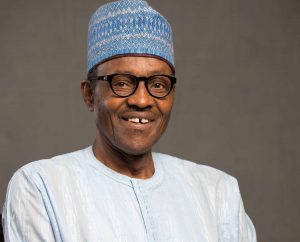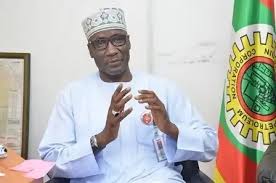
Niger Delta Stakeholders, under the aegis of Pan-Niger Delta Forum, on Tuesday presented 16-point demands to President Muhammadu Buhari at a closed door meeting in the Council Chamber of the State House, Abuja.
The demands were presented by the Amanyanabo of Twon Brass Bayelsa State, King Alfred Diete Spiff, on behalf of the stakeholders.
The 16 point-demands, which the leaders believed if achieved would restore hope and confidence in the region, include:
“The presidential amnesty Programme: the decry that out of the five components of the disarmament and retrieval of weapons from the ex-militants, only the disarmament and demobilization component is being implemented. Tensions over the fate of the Niger Delta Amnesty Programme is as a result of lack of genuine exit strategy.
‘’They want the Programme reviewed to reappraise its core mandate to provide a robust exist strategy, in order to transit recipients into jobs, effectively integrate them and few the of dependency on stipends, so that their new-found skills would be of benefit to themselves and larger community.
“Law and Justice issues: in view of the insecurity situation in the Niger delta, a number of pending law and justice issues regarding some aggrieved groups and individuals are yet to be resolved. It is important to address these issues urgently as a step towards lasting peace.
“The effect of increased military presence in the Niger Delta: the increased in military presence has resulted in invasion of communities, displacement of persons, harassment and other firms of human rights abuse. They want government to halt the the escalation of tension in the region.
“Plights of internally displaced persons: they want relevant government agencies to take urgent measures to meet their immediate needs of those displaced by upsurge of insecurity in the region.
“The Ogoni clean-up and environmental remediation: they want government to speed up the exercise. They want government to enforce zero gas flare deadline. They want the devastating effects of coastal erosion and lack of an effective shoreline protection for the coastal communities tackled urgently. They ask federal government to commission a region-wide credible assessment of the impacts of crude oil pollution of the environment in the region and undertake to enforce environmental laws.
“The Maritime University Issue: want prompt take off of the Niger Delta university
“Key regional critical infrastructure: they want completion of of East-West road, full implementation of the rail project that is designated to run through the Niger Delta region to Lagos.
“Security surveillance and protection of oil and gas infrastructure. They want pipeline surveillance contracts given to the communities rather than individuals in a manner that is some benefits to their responsibility. Communities would the see their responsibility over the pipelines as protection of what belongs to them.
“Relocation of Administrative and Operational Headquarters of IOCs: the headquarters of most oil companies are not located in the Niger Delta Region. As a result the region is denies all the developmental and associated benefits that would have accrued to the region from their presence. It has therefore become imperative for the IOCs to relocate to their areas of operation. This move old create a mutually beneficial relationship wi he host communities.
“Power supply: they advocate a power plan that strongly ties power supply in the region to gas supplies, thereby giving all sides a stake in proved stability.
“Economic development and empowerment: they want Brass LNG and fertiliser plant project including the Train 7 implemented, reviewing and updating the national gas master plan to integrate the economic interests and industrialization of the region, creating a Niger Dekta industrial corridor that would process some portions of the bat hydrocarbon natural resources, expediting work on the export processing zones, harnessing the huge rain-fed agricultural potentials of the area through the development of farms estates, fishery development projects and Agro-Allied industrial clusters etc.
“Inclusive participation in oil industry and ownership of oil blocs. They want the federal government to enunciate policies and actions that will address the lack of participation as well as imbalance in the ownership of oil and gas assets.
“Restructuring and funding of the NDDC: The restructuring will ensure it refocuses as a true interventionist agency to respond swiftly to the yearnings of the grassroots of the Niger Delta. Communities must be able to have a say in what projects come to them and also want full implementation of the funding provisions of the NDDC Act.
“Strengthening the Niger Delta Ministry: they say the era of abysmal funding should end. The ministry should be adequately funded and strengthen to fulfill the purpose for which it was created.
“The Bakassi Question, recommend a comprehensive resettlement plan including development for the host communities and displaced population to reduce the risk of making the into a stateless people.
“Fiscal federalism, the region supports the call for true federalism and urged that federal government should treat the matter expeditiously.”
Briefing State House correspondents at the end of the meeting, Minister of State for Petroleum Resources, Ibe Kachikwu said that the meeting was largely a courtesy call to bring to the front burner the issues of the Niger Delta and the concerns from the Niger Delta Leaders and what they believed the federal government should do to bring down pressure, stress and militancy to the barest minimum if not eliminated.
According to him, it was a fairly good and civilized dialogue between all the parties, noting that it was a beginning of a process.
He said: “We had over a hundred representatives. So, it was a very well attended function. Opinions given were very honest, very frank to the point. But I think at the end of the day, we exchanged enough thought processes to go back to the drawing board to begin a process of work.”
The Minister said that a lot of behind-the-scene talks have been going on which has boost oil production to 2.1 million barrels.
“One, we put a lot of moment on the fact of these incidences that happen. But I think the time has also come as members of the fourth estate of the realm to begin to put a lot of emphasis on the successes that have been recorded.
“The reality is that as of today and this morning, we are at 2.1 million barrels production. That’s substantial. That would not have happened without efforts that went behind through the royal fathers and leaders, through the militant leaders. A lot of behind-the-scene engagements had taken place and will continue to take place.
“If you look at 7 big wins that we set up last week, part of the expectations by 2017 is to target a zero shut as a result of result of militancy. What that means is that it is going to be an ongoing engagement. It will never finish. Different from what teams were setting up to do negotiations after the president had looked at this and given a strata, we also be the fact that on a roll on basis, the Ministry of Petroleum is continuing a quarterly meeting involving the oil companies who fairly beaten up a little bit today and the governors and the stakeholders which will happen once every 3 months.
“The first one is going to happen in Uyo in December and we are going to rotate that between the states so that we will have a platform irrespective of the negotiation that’s going on to deal with the issues and continue,” he added.
On his part, Chief Edwin Clarke disclosed that the meeting was arranged by the Minister of State for Petroleum Resources and all interest groups were represented.





